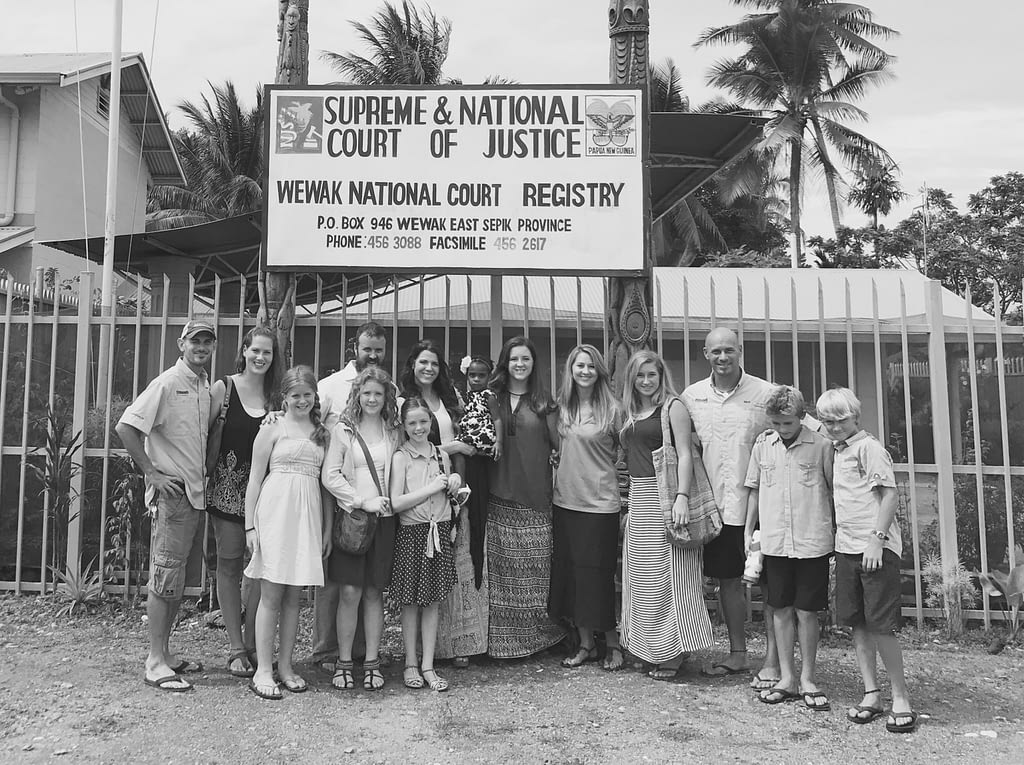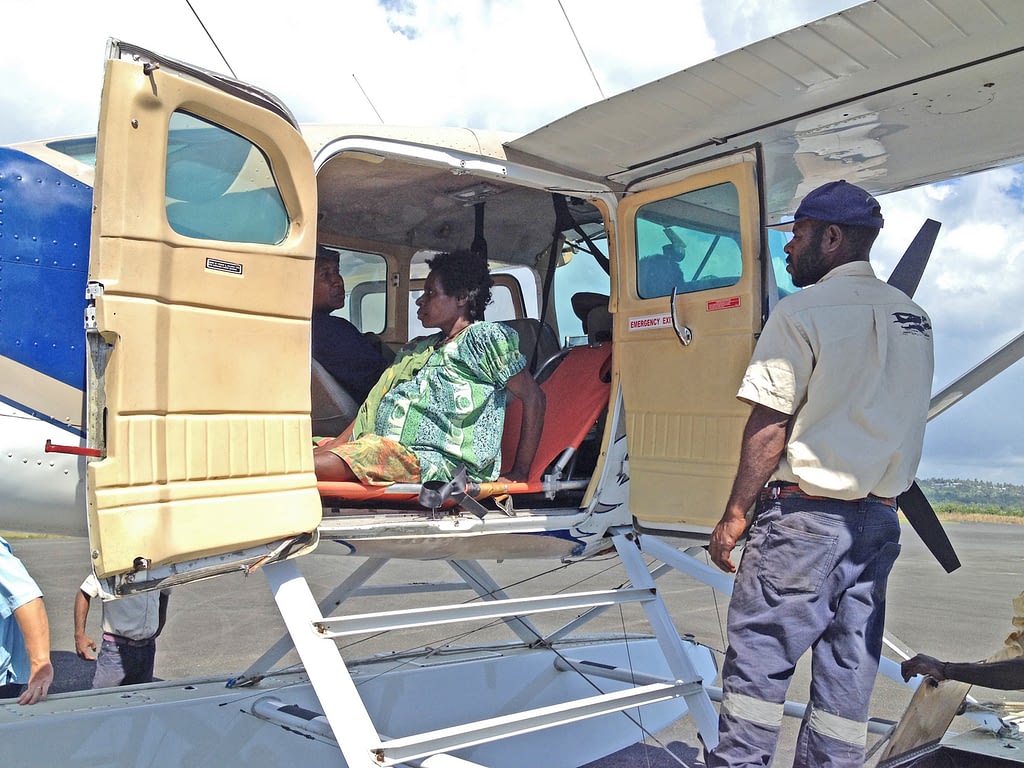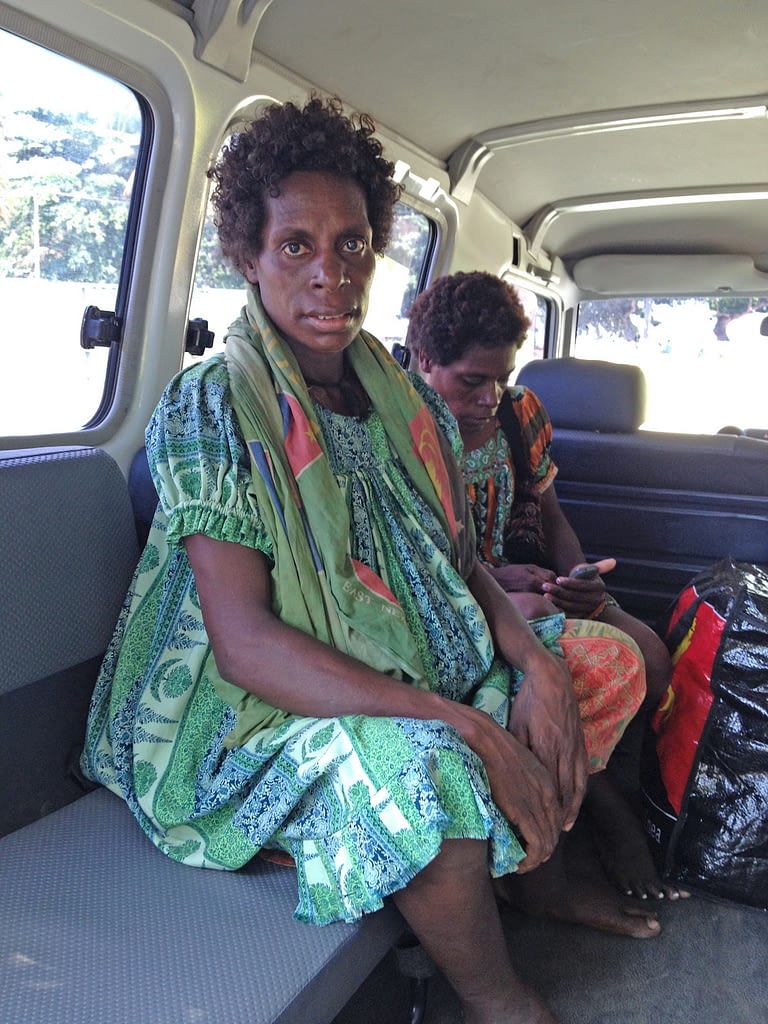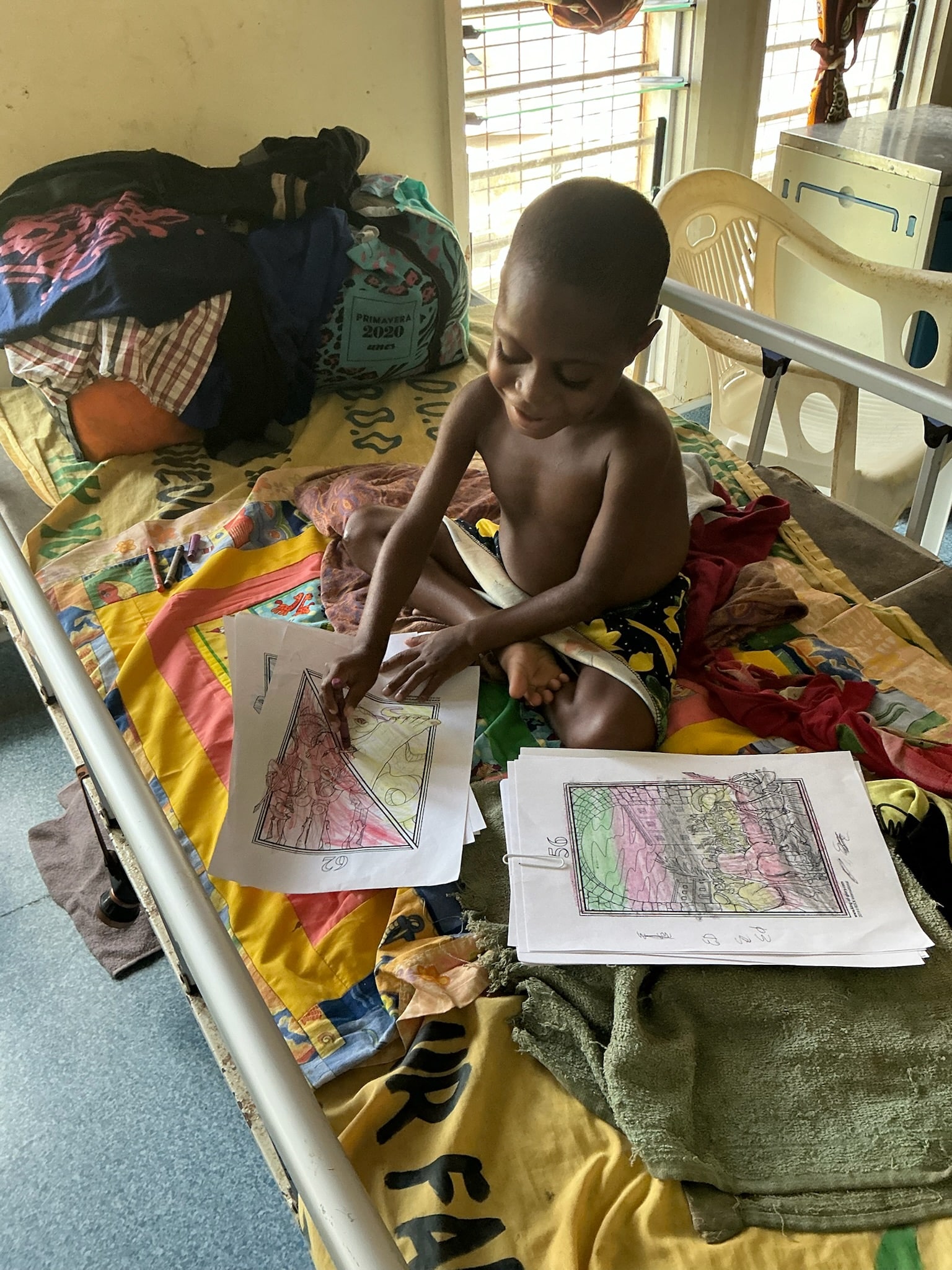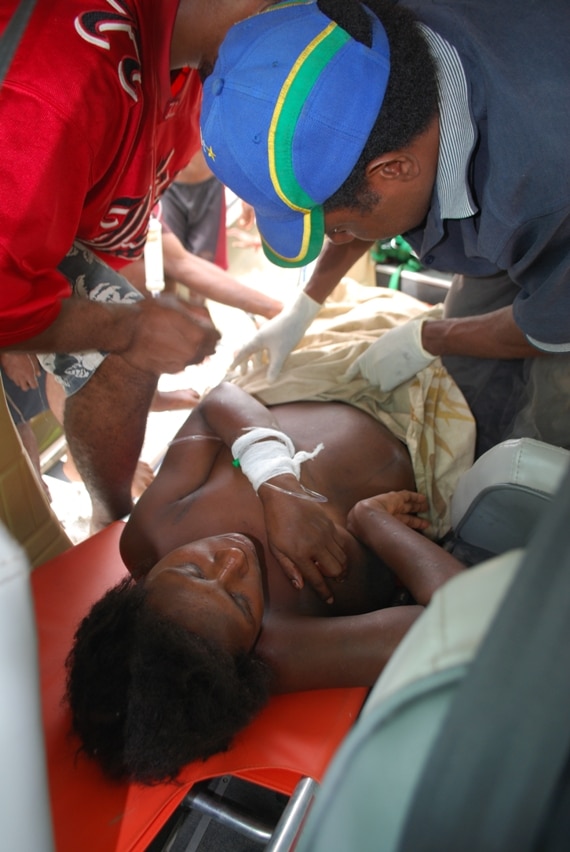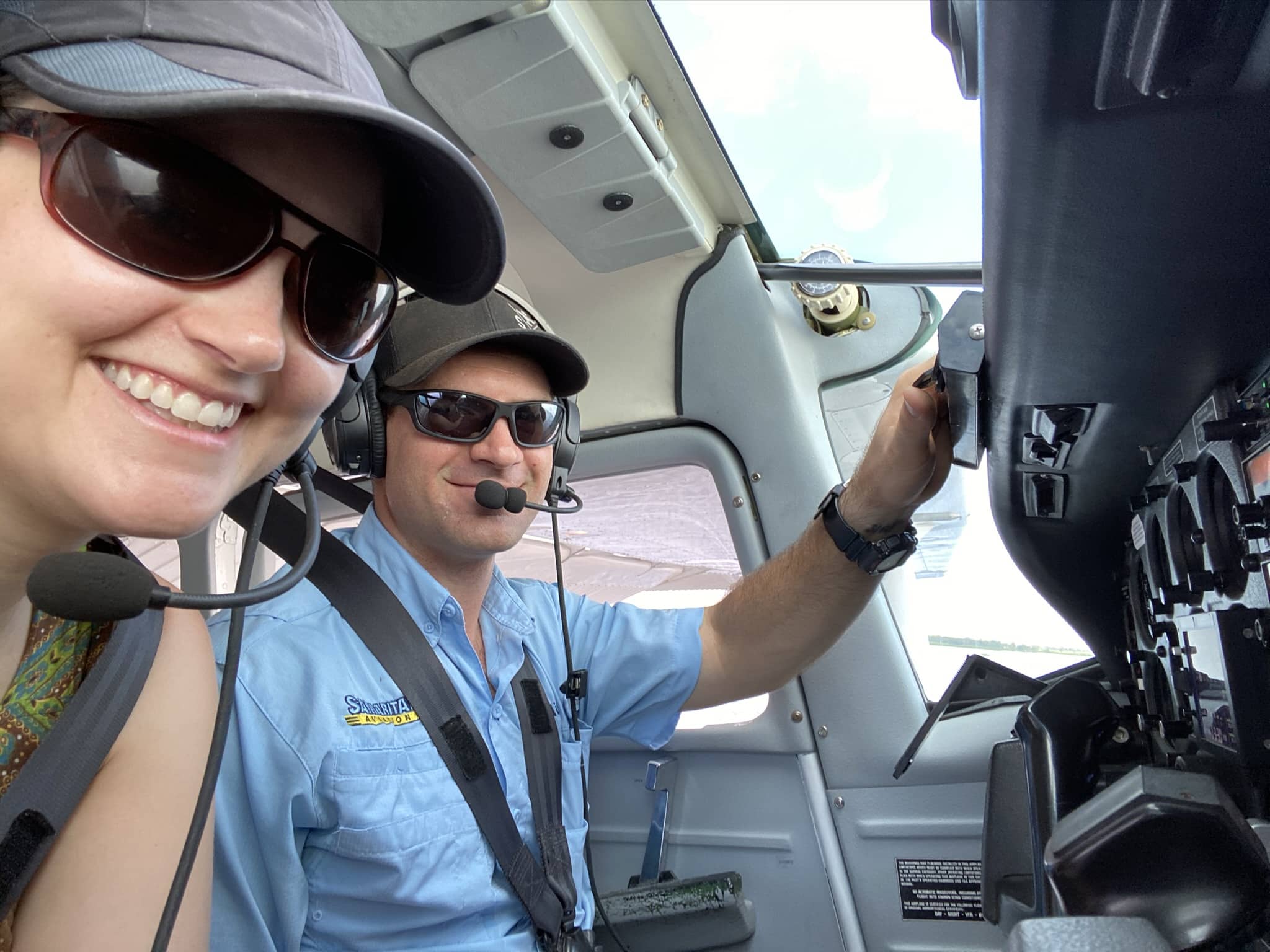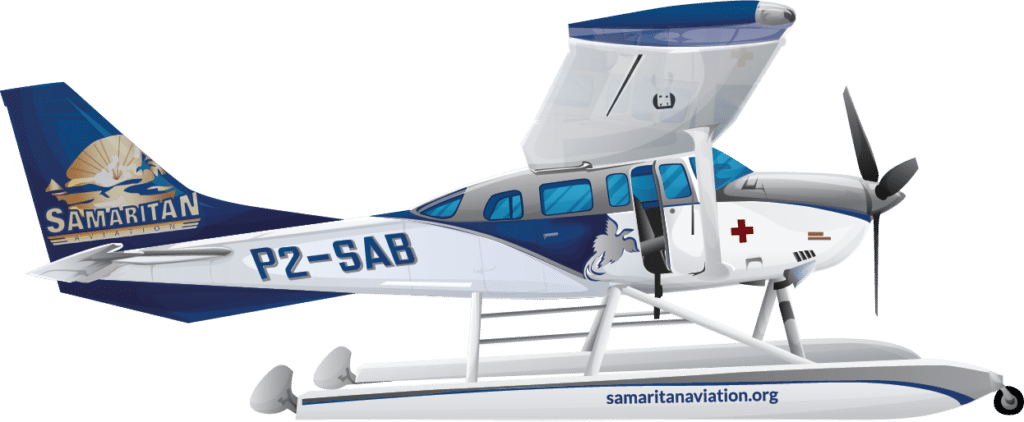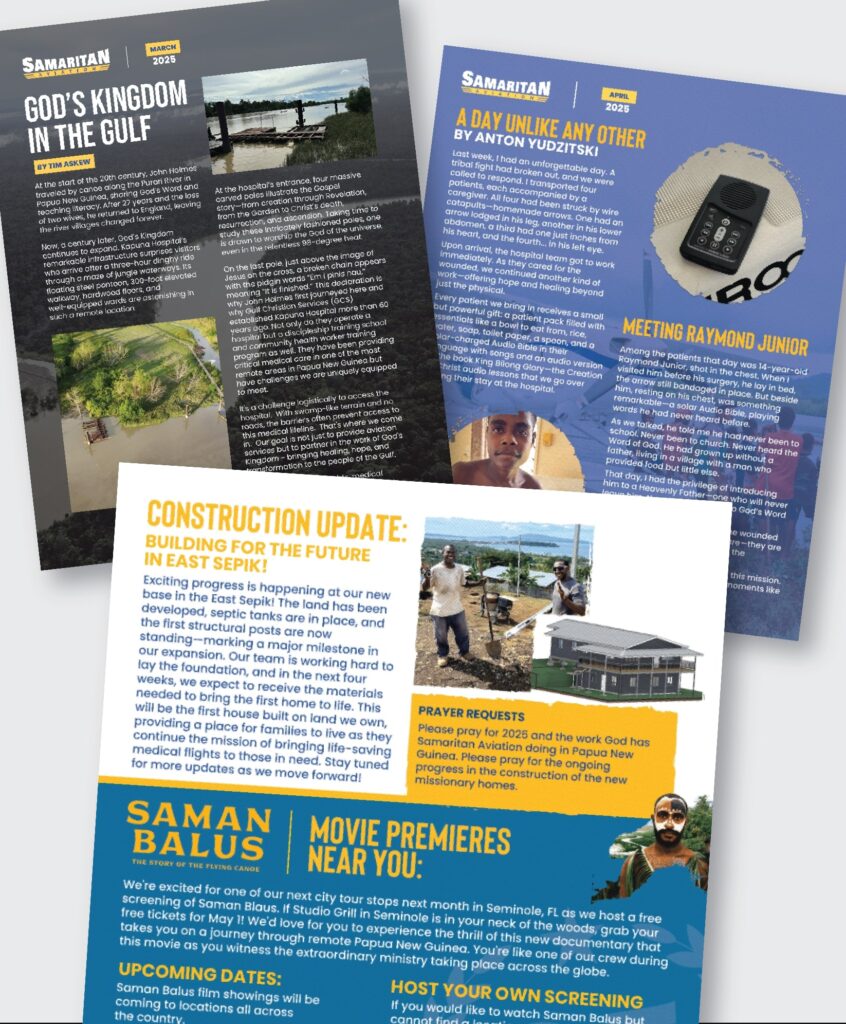Almost two years ago, in a remote village in the jungles of Papua New Guinea, a mother of five began labouring for a sixth time. Although progressive in comparison to most along the Upper Sepik River, the village aid post is capable only of routine treatment and emergency care. Augustina had no access to prenatal care or labour and delivery services, but instead laboured in the heat of a traditional thatched roof home just as all the women before her had. On a Wednesday, she gave birth to a healthy baby boy. When her pains only increased, the women attending her prepared for the birth of a second baby. On Sunday evening, four long days later, Augustina had still not delivered the twin and her desperate family sought help. Knowing that it would take 3 days of rough travel via canoe, they called Samaritan Aviation. We immediately made plans to pick her up in the floatplane at first light the following morning.
Just before taking off, we received word that Augustina had finally delivered a baby girl in the night but was now struggling through a third delivery. Triplets! We flew out to pick her up and when she finally arrived in Wewak, my husband (SA Medical Director) Chris Cooke, assisted a weary but smiling Augustina from the plane and on to the Boram Hospital. The hospital staff determined that the third baby lay transverse and would have to be delivered via caesarean section. Augustina went into surgery that evening and gave birth to another little girl. Due to the prolonged labour, the baby suffered from a blood infection and began treatment under the watchful care of the Boram Hospital nurses.
The next morning, Augustina’s family unexpectedly showed up at our doorstep and delivered the devastating news that Augustina had passed away early that morning. In obvious pain and sorrow, the family prepared to make the long journey back to bury Augustina and to mourn in their traditional customs. We agreed to look after the baby girl while she remained in the Haus Sik receiving treatment.
Every morning and every evening we checked in on Augustina’s daughter until she was finally discharged from the Haus Sik 10 days after her birth. Her family asked if we would continue to care for her while arrangements were made for all of Augustina’s 8 orphaned children. As it often occurs here, each of the children were placed in different homes, some nearer than others, to distribute the burden of the extra mouths to feed. Without any notice or time to prepare, we headed home with this tiny, precious girl. Knowing that any day she would be claimed and returned to her village, we struggled in vain to protect our hearts while providing the love she deserved.
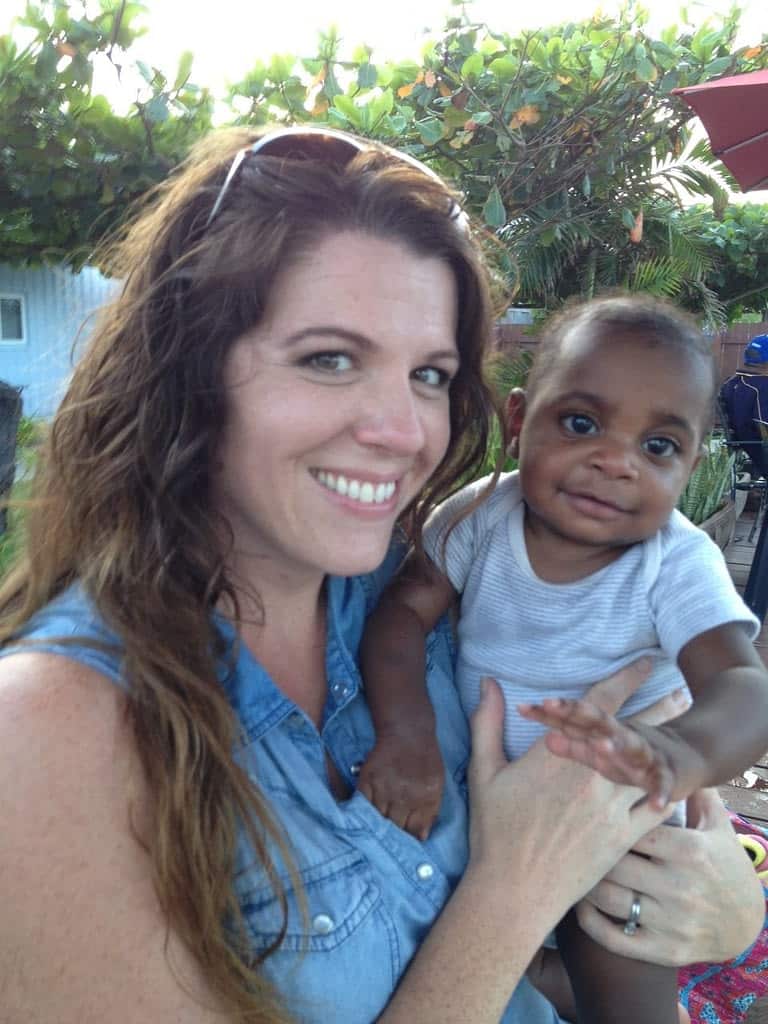
Months passed when a day was finally set for her to return home. Although this was the goal from the very start, our family grieved her loss as we packed her belongings for her trip back to the village. Broken, I stood over her as she slept in her crib for the very last time and begged God that somehow she would come to know Him and have His strength as she went through life. When baby Charlotte’s family came the next day, they told us that a home still could not be found for her and asked us to legally adopt her into our family as we already had in our hearts.
Nearly two years later, with Charlotte’s PNG adoption finally complete, it’s my daughter’s mother that I find myself thinking of as Mother’s Day nears. In PNG, 1 in every 110 women will die in childbirth. Comparing that to 1 in every 8,000 in countries like Australia and the U.S., that means that Augustina was 72 times more likely to die in childbirth than I was in America simply because she was born in PNG.
IN PNG, 1 IN EVERY 110 WOMEN WILL DIE IN CHILDBIRTH. COMPARING THAT TO 1 IN EVERY 8,000 IN COUNTRIES LIKE AUSTRALIA AND THE U.S.
We’ve seen countless brave PNG mothers battling to raise their children amid rampant childhood illnesses easily preventable in the U.S. Fueled by a mother’s fierce love, these strong women are toiling well before daybreak and spend hours labouring in their gardens to provide food and income for their families. Driven by hope, they strive for better futures for their children while struggling against the violence and spiritual darkness all around them.
Although motherhood is the absolute best thing I’ve ever ventured to do, it is also the hardest. Whether here or across the world, as mothers, we have the unique privilege of laying aside ourselves for our children with the hope that they might one day impact their world with Christ’s love. With over 40% of Samaritan Aviation’s life flights arising from pregnancy and childbirth complications, we’re helping mothers battle these issues one flight at a time. Thank you for your gifts that help make this possible. Thank you for investing in precious souls like our Charlotte who otherwise had no hope.
-Written by Sarah Cooke
